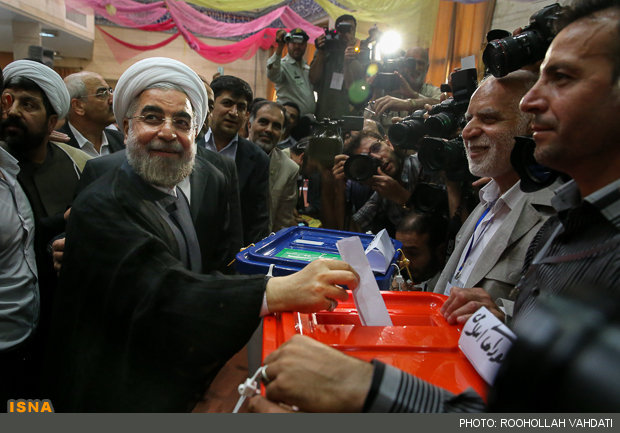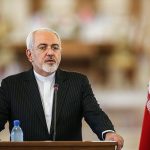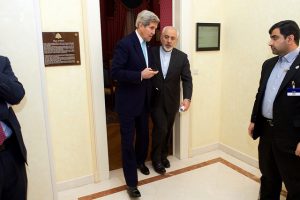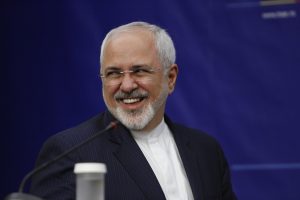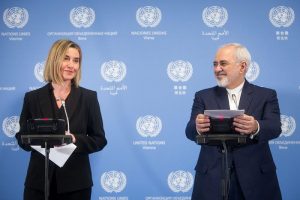by Reza Marashi
The election of Hassan Rouhani as Iran’s next president has elicited different interpretations in Washington. To some, Iranian officials from both sides of the political spectrum are cut from the same cloth, so a pox on both of their houses! To others, a centrist Iranian president offers the best opportunity for finding a peaceful solution to the US-Iran standoff since Barack Obama’s first year in office. That said, Iranian politics can simultaneously produce continuity and change. A few key signposts stand out.
The Changes
A freshly elected Rouhani will feel bolstered in his views, and in turn, will work to push forward his agenda. Nevertheless, he is not all-powerful with regards to nuclear negotiations and improving US-Iran relations. In an effort to boost his chances of success internally, Rouhani will likely build a coalition government that utilizes diverse factional views and figures. This will pave the way for the return of many reformist and technocratic mindsets to the executive branch who have a demonstrated track record of seeking more professional approaches in addressing Iran’s foreign policy and national security challenges.
Yes, Ayatollah Ali Khamenei will have the last word on Iran’s nuclear program and on its relationship with the United States. But Rouhani’s coalition government will almost certainly facilitate the process. The diversity of views in his government may complicate negotiations at first, as different personalities and factions re-learn to work with one another, but finding creative solutions will likely become more feasible for one key reason: Mahmoud Ahmadinejad’s (and to be fair, Khamenei’s) insistence on using inexperienced forces in Iran’s diplomatic apparatus will no longer be a glaring weakness in Tehran.
Simply put, Ahmadinejad’s departure from office can provide a burst of momentum to facilitate reciprocal, confidence-building overtures between Tehran and Washington — momentum that was nearly impossible over the past eight years due to Ahmadinejad’s political toxicity.
The Continuity
From monarchists to mullahs, Iranian officials have long been focused on consolidating their country as a regional power, undeterred by the objections of great powers. The key cornerstones of this strategy will not change under a Rouhani presidency. As with the Rafsanjani, Khatami and Ahmadinejad presidencies, Iran will seek to improve ties with its immediate neighbors, as well as prominent Islamic countries. To that end, relations with regional powers Saudi Arabia and Turkey will likely be Rouhani’s top priority.
A Rouhani presidency will also continue Iran’s prioritization of improving its indigenous technological capabilities. The very existence of Iran’s nuclear program, missile development, satellite launches and arms procurement are key examples of issues deemed contentious by Washington and non-negotiable by Tehran. However, the contours of these activities are negotiable, and Iran is willing to place limitations on them — for the right price.
It’s critical for Washington to understand the value that all political factions in Iran — including Rouhani — place in the principle of standing up to western pressure. As the Supreme Leader’s chief foreign policy advisor (and potential Rouhani political appointee) Ali Akbar Velayati remarked, Iran will “never give in and never give up.”
The bottom line of Tehran’s nuclear negotiating stance — aimed at achieving acknowledgment of its right to enrich uranium on Iranian soil and the lifting sanctions — has transcended presidential administrations. The key difference between the governing style of Rouhani and his former campaign rival, Saeed Jalili, will be more in style rather than substance. Indeed, during the presidential debates Rouhani did not object to Jalili’s nuclear objective and rather to Jalili’s inability to avoid high costs while pursuing those objectives.
What Happens Now
An opening to the US during Rouhani’s presidency will likely be accepted by Iranian elites — provided it’s not interpreted as a sign of weakness and helps bolster rather than damage Iran’s regional standing. To that end, confidence-building measures have proven to be a difficult construct, largely due to what former President Mohammad Khatami describes as a “wall of mistrust” between the countries.
Contrary to popular assumption in Washington, the Iranian power structure has produced — not “allowed” — a shift in the Iranian presidency, which will likely produce some changes in policy. The degree to which these policy shifts are favorable to Washington’s interests will largely depend on its own actions in moving forward.
When Rouhani and his team attempt to challenge and re-define policies, it will be incumbent upon them to demonstrate an alternative narrative that is squarely in the best interest of the system. Few would argue against the notion that Ayatollah Khamenei’s prevailing narrative is predicated on the idea of nefarious US intentions. Since it will be vital to break Khamenei’s narrative for diplomacy to succeed, Washington must demonstrate through word and deed that it is not against Iran’s scientific, technological and regional progress.
The track record over the past fifteen years is clear: eased foreign tension empowers Iranian centrists and moderates; increased foreign pressure cements the anti-western narrative in Iran. Want to help Iranian hard-liners box in Rouhani? Want to push moderate elements of the Iranian elite into the mindset of distrusting the US? Increasing sanctions and other forms of pressure will almost certainly produce these outcomes.
Contrary to a reigning assumption in certain Washington circles, sanctions did not force the regime to “allow” Rouhani’s victory. Instead, pressure from the Iranian people at the ballot box forced the regime to honor the vote for fear of a 2009 post-election redux that could deepen existing wounds within the regime and, in turn, bring about its total collapse. Khamenei could cheat once, but not twice in a row.
The show of popular force behind Rouhani will provide him with a degree of latitude to break from the previous administration’s policies. But his political rivals won’t have to dig very far into their playbook to sabotage his efforts if new sanctions render him unable to fend off charges of weakness. In this scenario, rather than compromise with the US, Rouhani will be forced to back Khamenei’s narrative, “We respond to pressure with pressure.”
Failure on the part of Washington to seize the opportunity presented by Rouhani’s victory will render his more conciliatory approach to the US stillborn. Of course, for some, this is the preferred outcome.
— Reza Marashi is Director of Research at the National Iranian American Council.
— Photo Credit: Roohollah Vahdati

